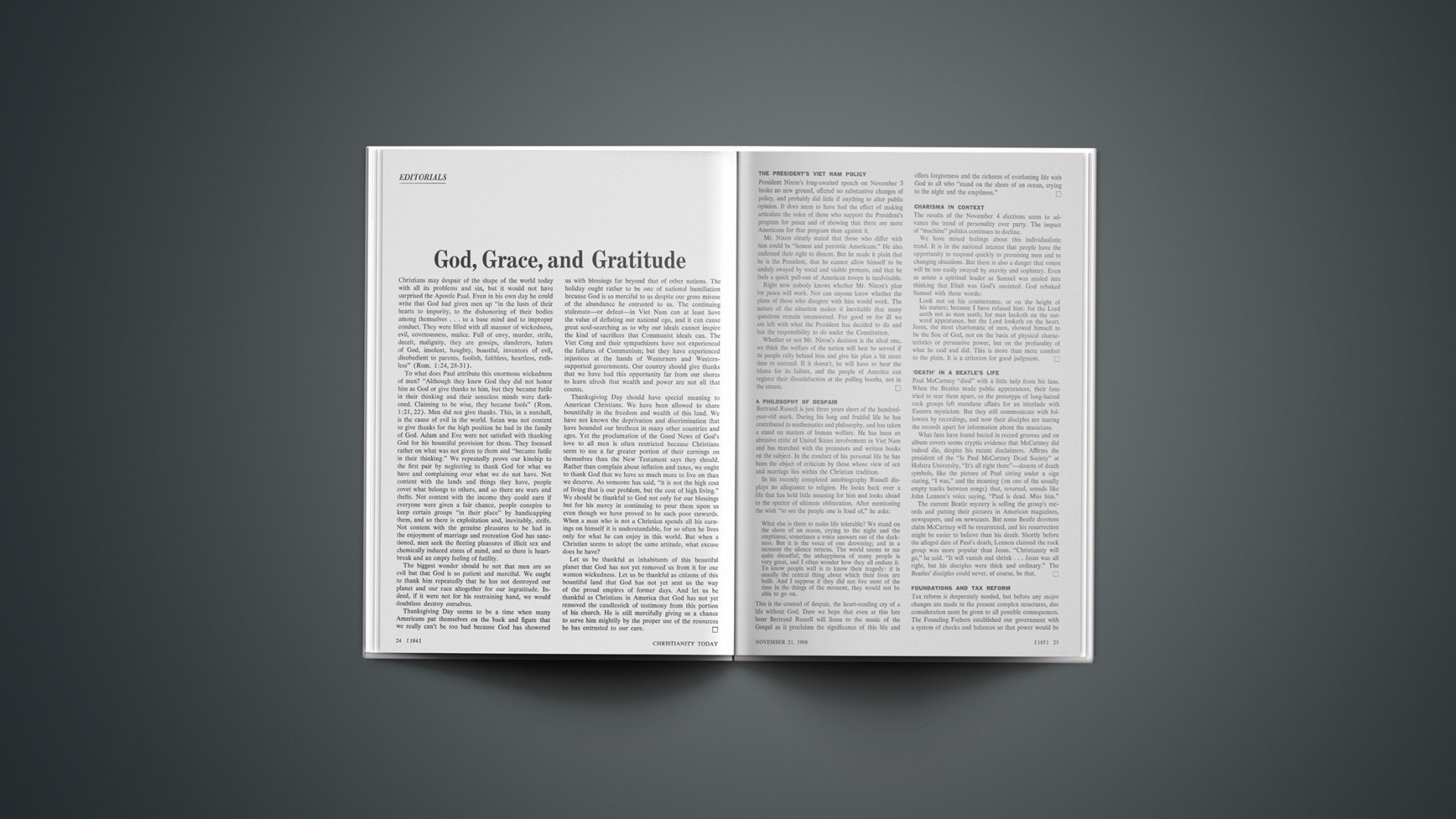President Nixon’s long-awaited speech on November 3 broke no new ground, offered no substantive changes of policy, and probably did little if anything to alter public opinion. It does seem to have had the effect of making articulate the voice of those who support the President’s program for peace and of showing that there are more Americans for that program than against it.
Mr. Nixon clearly stated that those who differ with him could be “honest and patriotic Americans.” He also endorsed their right to dissent. But he made it plain that he is the President, that he cannot allow himself to be unduly swayed by vocal and visible protests, and that he feels a quick pull-out of American troops is inadvisable.
Right now nobody knows whether Mr. Nixon’s plan for peace will work. Nor can anyone know whether the plans of those who disagree with him would work. The nature of the situation makes it inevitable that many questions remain unanswered. For good or for ill we are left with what the President has decided to do and has the responsibility to do under the Constitution.
Whether or not Mr. Nixon’s decision is the ideal one, we think the welfare of the nation will best be served if its people rally behind him and give his plan a bit more time to succeed. If it doesn’t, he will have to bear the blame for its failure, and the people of America can register their dissatisfaction at the polling booths, not in the streets.










